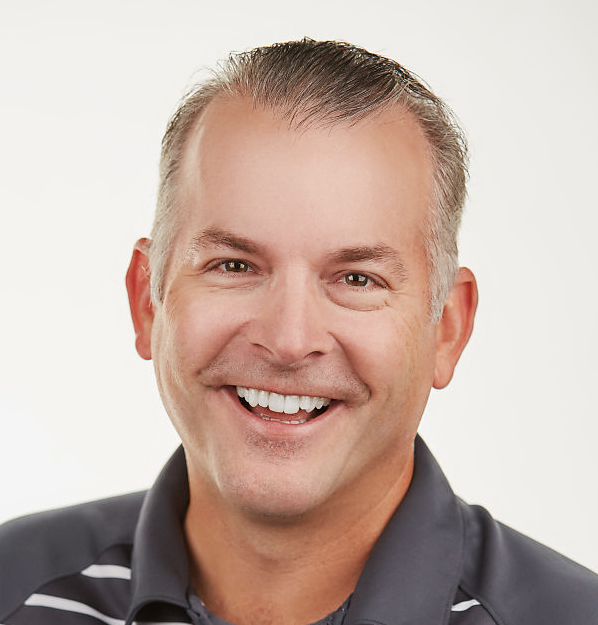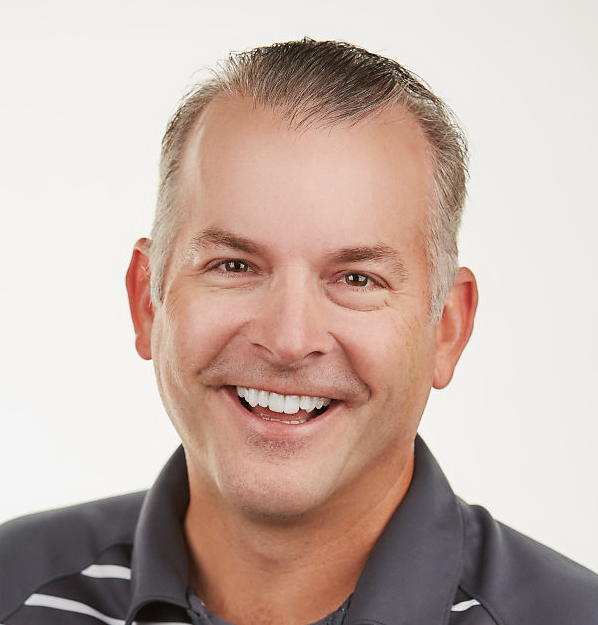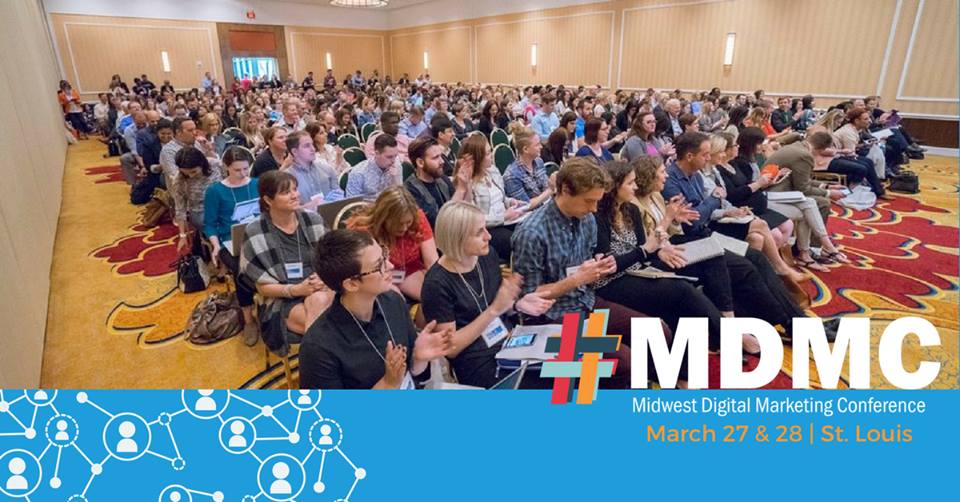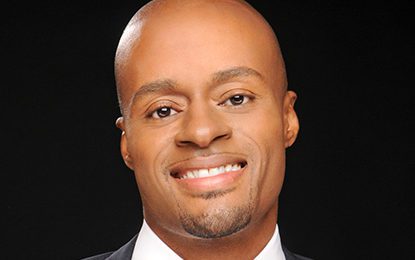 Dave Rohrer is the founder of the Chicago-based digital agency NorthSide Metrics, where he helps various businesses improve their digital marketing to drive more quality traffic, leads, and sales. He is also a co-host of The Business of Digital Podcast, where he together with Mat Siltala discuss such topics as Paid Social, SEO, Content Marketing, CRO, PPC, Email Marketing and many others.
Dave Rohrer is the founder of the Chicago-based digital agency NorthSide Metrics, where he helps various businesses improve their digital marketing to drive more quality traffic, leads, and sales. He is also a co-host of The Business of Digital Podcast, where he together with Mat Siltala discuss such topics as Paid Social, SEO, Content Marketing, CRO, PPC, Email Marketing and many others.
Dave has spent more than 10 years as a web developer, SEO manager, and online marketing manager, and more than 5 years at agencies where he worked directly with Internet Retailer 100 and Fortune 500 clients. He says about himself, “I am a proven online marketer that is able to see how all of the pieces work together to achieve success for a business. While I have a technical background, I prefer to utilize metrics, KPIs and data to drive winning client strategies.”
Dave’s session at MDMC18 titled “How to Win At and With SEO” will focus on the current changes taking place in SEO, namely, Mobile First, Local SEO and the growing number of ads. Dave will dig into how to win at SEO in 2018, which KPIs matter to SEO and other teams, and how to make them all work together.
Here are Dave’s answers from the pre-conference Q&A session.
Q.1. What are some big mistakes a business could make when it comes to digital marketing?
D.R.: Not having a plan. This goes from not having an overall marketing plan to not having a fully thought out plan on how to implement some new project or campaign. Digital allows you to move fast (content pushed to a blog in hours, social posts out in minutes, paid search campaign same day), so often there is no plan on what to do AFTER or even how to properly do it.
Q.2. What is your favorite marketing book you have read lately? Or, what are a few of your favorite marketing blogs?
D.R.: Twitter for daily reading and marketing updates. The Power of Habit book from earlier this year and the most recent book I have been reading that I like is UnBranding.
i. Twitter – yes, I still use and like Twitter (mostly). For a quick way to dig into not one website but a large number I still prefer it over any other source.
ii. UnBranding: 100 Branding Lessons for the Age of Disruption by Alison Stratten & Scott Stratten – it is 100 chapters and quick case studies in branding.
iii. The Power of Habit: Why We Do What We Do in Life and Business by Charles Duhigg – a great read into why people do what they do and how to make/break habits.
Q.3. According to you, what are the top three mistakes committed by organizations today in leveraging digital marketing?
D.R.: The common mistakes will likely change a bit depending on where you are in a company, but I think these three are likely ones that almost any team will come across.
i. Team Silos – From Marketing to IT to CS to Sales – teams working together more and across more projects should be more common than not, but sadly it is so often the other way.
ii. Lack of QA – Whether you are rolling out a full product or the MVP version you still need to QA. If you are launching a new website or a new AdWords campaign you still need to check URLs and make sure that the robots.txt doesn’t tell Google/Bing to not index the site.
iii. Lack of Planning – SEO is often brought in very late to a project and often is brought in after the launch. I also often see IT, Social, or any other group not given proper heads up around deadlines and deliverables so that 36 hours before a campaign or project goes live those teams are emailed with a “WE NEED YOU TO DROP EVERYTHING AND DO THIS NOW” type email, Slack, Skype, text message and call.
Q.4.: Which are your three favorite digital marketing tools?
D.R.: In the realm of SEO there are 100s of tools with new paid and free tools coming out all the time. If I was hard pressed to only choose a handful these are three that I would highly consider worth it.
i. Sales Team/Customer Service – from a content ideation standpoint and understanding the problems your clients/prospects are facing these two groups have a ton of insight. What the marketing team or industry calls something is often now how a prospect thinks. So, when it comes to talking to them or hearing the WHY they are considering your product or service you can gather great insights into how to mold your marketing copy or perhaps an idea on a great blog post.
ii. Crawlers – There is a number out there – Screaming Frog, Sitebulb, Deepcrawl, Xenu, Page Modified, and others that vary in price from free to very expensive. What these tools do is crawl your site much like a search engine does. The insights into things you can do to help your SEO are often huge.
iii. Google Analytics (GA) or Google Search Console (GSC) – I personally use both on almost every project I work on and the data there while taken with a grain of salt is really one of the best tools to help with SEO (or any digital marketing project).
Q.5. If you were looking to hire a digital marketer, what are the top 3-5 skills you would be looking for in a candidate?
D.R.: For me, this may change a bit depending on the position or their experience but at the core, these are things I look at:
i. Drive and curiosity – no matter which specific area you go there is constant change. You must keep up.
ii. Data & Excel – From reporting to understanding trends in PPC/SEO the ability to dig into data is a big one for me.
iii. Writing or Coding – either one (or both) are often required to have a job in digital. And you don’t have to write a book or an application/website from scratch, but you do need to understand beyond the basics.
iv. Problem solver – often there is no right or wrong solution but simply a goal. Being able to use available tools and resources to solve a problem will win almost any boss over.
Q.6. What’s the industry buzzword that annoys you the most these days and why?
Synergy or Synergize – take your pick I simply don’t like any version of the phrase (and never have). I don’t hear it daily anymore, but when I do I cringe.
#MDMC18 Twitter Chats
The Midwest Digital Marketing Conference (MDMC18) offers various activities for the audience to get to know the speakers. One of those – twitter chats – take place every week. During the chat anyone can ask the speaker a question regarding their area of expertise as well as their session at MDMC18.
The first twitter chat was held on December 12, 2017 with Yuval Yeret, the Agile Marketing Practice Lead at AgileSparks. Yuval’s MDMC18 session called “Can elephants dance? Agile Marketing at Scale – CA’s story”, explains how large, traditional marketing organizations can adjust and quickly sense and respond to customer needs and market changes.
In the twitter chat with the MDMC18 audience, Yuval Yeret spoke about the benefits of agile marketing for organizations, among which are working in a more sustainable and meaningful way. He explained that when a company’s marketing department switches to agile marketing, they find time to be creative; they transform the way they are working and leading, and then end up contributing more revenue to the business. Yuval also provided the examples of software used by agile marketing teams, such as Scrum and Kanban, and discussed the benefits of both.
MDMC18 will hold many more twitter chats for you to learn more about the speakers and their sessions:
| Jan 9 @ 10 AM CST | Chris Brewer, Online Marketing Giant |
| Jan 16 @ 2 PM CST | Steph Nissen, Atomic Revenue |
| Jan 23 @ 12 PM CST | Tom Harness, Harness Digital Marketing |
| Jan 30 @ 10 AM CST | Mitch Canter, Vanderbilt University |
| Feb 6 @ 12 PM CST | Mike Alton, The Social Media Hat |
| Feb 13 @ 12 PM CST | Keisha Mabry, The Connection Curator |
| Feb 20 @ 12 PM CST | Aleshia Patterson, Nonprofit Marketing Magazine |
| Feb 22 @ 2 PM CST | Evangeline Schultz, Regenerate Marketing, LLC |
| Feb 27 @ 10 AM CST | Ryan Brock, Metonymy Media |
| Mar 6 @ 2 PM CST | Dre Baldwin, Work On Your Game, Inc. |
| Mar 13 @ 12 PM CST | Kasim Aslam, Solutions 8 |
When taking part in a twitter chat with the MDMC18 speaker make sure to include #mdmc18 in your tweet to send your question.
Learn How To Befriend Google With Chris Brewer At MDMC18
 The co-founder of Online Marketing Giant & OMG Commerce, Chris Brewer is known to others as “The Idea Machine”. A superior problem solver and a highly creative business thinker, Chris has been a successful entrepreneur for over 15 years working with seven-figure companies in the digital, publishing and outdoor advertising industries.
The co-founder of Online Marketing Giant & OMG Commerce, Chris Brewer is known to others as “The Idea Machine”. A superior problem solver and a highly creative business thinker, Chris has been a successful entrepreneur for over 15 years working with seven-figure companies in the digital, publishing and outdoor advertising industries.
Brewer’s company Online Marketing Giant & OMG Commerce is a Google Premier Partner agency based in Springfield, MO, which delivers online and offline marketing expertise, advice and education to businesses, franchise groups and e-Commerce brands worldwide.
Chris is the author of the book “Does Your Marketing Make You Money: 7 Quick & Easy Secrets to Create A Booming Business Now”. Brewer regularly coaches and speaks to entrepreneurs and small business leaders on business growth and marketing. He resides in Springfield, MO, with his wife of 22 years and two children.
During his MDMC18 session called “How To Befriend Google and Win”, Chris is going to share how a business can benefit from recent Google changes. Together with Brett Curry, Kasim Aslam, Michael Bartholow, and David Kidd, Chris is going to be a speaker at the SEO Panel.
Here are Chris’s answers from the pre-conference Q&A session.
Q.1. What are some big mistakes a business could make when it comes to digital marketing?
C.B. Failure to become educated about the basics of digital marketing is the number one mistake I see. Those that are educated don’t fall prey as easily to the wannabe’s and robo-callers so prevalent in digital marketing today.
Also, missing the basics of what Google gives you for free. I recently published a new playlist on our YouTube Channel that covers the 7 Ways To Optimize Your Google My Business Listing. https://www.youtube.com/watch?v=Cjarl_N4Wzo&list=PLyhZzeaFTzwPRokVTnSJ7JSEs1dWxq5Bg
Q.2. What do you think is the next game changer in digital marketing, such as a new, modern tactic, tool, or aspect of marketing? How will it evolve in the coming years?
C.B. Voice-driven search has been a big one and SEO’s and businesses are still adapting to that. In 2018 Google is going to take more and more of the search traffic away from websites, so you have to be on your game in how Google wants to index your information. Over the coming years, audiences will continue to be fragmented and customized. Content tailoring to audiences will create some definite winners and losers.
Q.3. What is your favorite marketing book you have read lately? Or, what are a few of your favorite marketing blogs?
C.B. Purple Cow by Seth Godin. It’s not new, but it is still very relevant. Love Neil Patel…of course!
Q.4. What are some social media time management tips that help you stick to your campaign goals without losing a lot of time?
C.B. Plan, plan, plan. Failure to plan your social media strategy and reassess it regularly is the key. When you don’t plan, you will fire without a target and miss every time.
Q.5. Share your favorite digital marketing case study. What did you like most it?
C.B. It’s a recent one. It’s not a huge client, but it was very fun. We took a musical group in Branson, MO, that has regional and some national recognition and completely overhauled their digital presence. We started with their database and their YouTube Channel. We created custom audiences from their database of nearly 1,000,000 customer/fan emails. It helped them skyrocket their iTunes & Spotify downloads without any help from a label. We accomplished their goal of selling out a venue outside their main performing area in a matter of days using Facebook Ads to the custom audiences we created.
Q.6. According to you, what are the top three mistakes committed by organizations today in leveraging digital marketing?
C.B.:
- Failure to map a sales funnel for what you want to accomplish.
- Failure to test smaller batches before launching a full-scale campaign.
- Failure to educate themselves enough to know that what a third-party or in-house marketing team is telling them is true/accurate.
Q.7. Which are your three favorite digital marketing tools?
C.B.:
- SEM Rush
- Bright Local
- Google Analytics
Q.8. If you were looking to hire a digital marketer, what are the top 3-5 skills you would be looking for in a candidate?
C.B.:
- Google Adwords Experience/Skills
- Google Analytics Experience/Competency
- Ability to think strategically within an open mindset
Q.9. Who are three people you respect when it comes to digital marketing?
C.B.:
- Ezra Firestone
- Brett Curry
- Roland Frasier
Q.10. What’s the industry buzzword that annoys you the most these days and why?
C.B. Anything related to bitcoins!
Take a Deep Dive with Pre-Conference Workshops
MDMC is the largest digital marketing conference in the Midwest, featuring speakers from such companies as BuzzFeed, Facebook, Twitter, LinkedIn, Google, and many others.
This year MDMC18 will be bigger and better than ever: In addition to more than 100 sessions which will be held at St. Louis Union Station on March 27 and 28, 2018, attendees can participate in pre-conference workshops.
MDMC18 will host the total of 6 pre-conference workshops on March 26, 2018. Each workshop is a 3-hour “working session” that delves deeply into a particular digital marketing topic, such as LinkedIn, Paid Search, B2B Marketing Automation, Facebook Advertising, Content, and Email Marketing.
Thus, the workshop called “Harnessing LinkedIn to Grow Your Business” will be interesting for those striving at leveraging the company’s presence on LinkedIn to grow business. “Email Marketing” workshop will be of great use for those trying to learn how to use email to drive higher customer lifetime value and a longer-term marketing ROI. The workshop named “How to Create & Amplify Content that Converts” will benefit marketing specialists across multiple industries who need specific tools and tips on how to build a specific content strategy. The workshop will show how to accurately align content to specific target audience’s questions, problems and goals at each stage of the customer journey.
The pre-conference workshops can be purchased individually or with the main conference pass. Premium passes include access to one workshop. Three concurrent workshops will be held from 9 am to 12 pm and the remaining three workshops will be also held concurrently from 1 pm to 4 pm. Visit our website for more details about the pre-conference workshops.
Work On Your Game With Dre Baldwin
Dre Baldwin is the world’s only “Work On Your Game” expert, who speaks, coaches and consults business professionals on Mental Toughness, Self-Confidence, and Self-Discipline.
Dre was a professional basketball player for 9 years. He has been blogging since 2005 and started publishing his videos on YouTube in 2006 – he posted a new video every day for 7 years in a row! So far, he has published over 6,000 videos: with more than 125,000 subscribers, his videos have been viewed over 40 million times.
Dre has given 4 TED Talks, published 14 books and more than 150 basketball programs. His “Work On Your Game” podcast is ranked among Top 200 Education broadcasts on iTunes.
Dre is going to be a Keynote Speaker at the MDMC18. In his talk, he will share how to apply the tools, which he learned during his career as a professional athlete, to the business world.
[youtube https://www.youtube.com/watch?v=kSz7UL4KDWk]
As usual, before the conference, we sat down with Dre to talk about social media and digital marketing.
Q.1. What are some big mistakes a business could make when it comes to digital marketing?
D.B.:
– Not doing it!
– Being too generic
– No human voice behind their material
– Having nothing unique and interesting to say
Q.2. What do you think is the next game changer in digital marketing, such as a new, modern tactic, tool, or aspect of marketing? How will it evolve in the coming years?
D.B.: Immediacy. With live streaming, stories and snaps, we can share more and more of our daily lives, and people will want more and more of it. Those who are best at it will have a following who is constantly awaiting the next update.
Q.3. What is your favorite marketing book you have read lately? Or, what are a few of your favorite marketing blogs?
D.B.:
- “Steve Jobs” by Walter Isaacson
1a. “Win Bigly” by Scott Adams
Q.4. What are some social media time management tips that help you stick to your campaign goals without losing a lot of time?
D.B.: I don’t try to manage my time! There are 24 hours; no amount of management will change that. I just get it done, period.
Q.5. Which are your three favorite digital marketing tools?
D.B.:
- Cameras
- . Stories/Snaps
- 3. Email/blog posts
Q.6. If you were looking to hire a digital marketer, what are the top 3-5 skills you would be looking for in a candidate?
D.B.:
- Clearly understand my brand and message
2. Have innovative ideas aside from my own
3. Look for an edge, a way to be creative and new
Q.6. What’s the industry buzzword that annoys you the most these days and why?
D.B.: “Influencer.” Everyone is always aiming to influence. And, having a lot of followers is not the same as having a lot of buyers. Companies are finding that out.
Learn About The Blogger’s Mindset With Mike Allton
 Mike Allton is a Content Marketing Practitioner at the Social Media Hat, and an award-winning Blogger and Author, who lives in St. Louis. He is also the Chief Marketing Officer at SiteSell – a company, which helps solopreneurs online. When talking about himself, Mike says: “My goal is to ensure that businesses are able to leverage the power and connectivity of the Internet to promote and grow their business.”
Mike Allton is a Content Marketing Practitioner at the Social Media Hat, and an award-winning Blogger and Author, who lives in St. Louis. He is also the Chief Marketing Officer at SiteSell – a company, which helps solopreneurs online. When talking about himself, Mike says: “My goal is to ensure that businesses are able to leverage the power and connectivity of the Internet to promote and grow their business.”
Mike has been working with websites and the Internet since the early ’90’s. Mike teaches a holistic approach to content marketing that leverages blog content, social media and SEO to drive traffic, generate leads, and convert those leads into sales. He is also active on all of the major social networks.
In his MDMC18 session called “The Blogger’s Mindset – Find Topics, Write Faster, And Reach More People”, Mike will share his techniques and insider tips that have propelled his own blog and brand to the top. Mike will showcase how he promotes his content to get the maximum amount of exposure, increase the reach and drive more traffic to the blog. He will provide an insight into his strategic approach to blogging that ensures each piece of content is created for a purpose that fits long-term business goals.
Here are Mike’s answers from the Q&A session before the conference.
Q.1. What are some big mistakes a business could make when it comes to digital marketing?
M.A. The biggest mistake that I see far too many businesses & bloggers repeat over and over is to make their social profiles all about themselves. They treat social networks and posts as a broadcasting medium when, in reality, they should be working to create relationships. That means sharing thoughts & ideas that promote discussions, and working to find ways to integrate their audiences into the posts themselves.
Q.2. What do you think is the next game changer in digital marketing, such as a new, modern tactic, tool, or aspect of marketing? How will it evolve in the coming years?
M.A. We’re watching Live Video become such a game changer for digital marketing.
Right now, it’s mostly businesses broadcasting and consumers, well, consuming. As the platforms evolve and consumer confidence and competence grow, they’ll begin to play a larger role in the creation of video. For instance, right now, the easiest way to broadcast live video to Facebook with guests is to use 3rd party tools like BeLive. That precludes audience members from joining the video. Yet the ability to allow audience members to “come in” was one the great features of Blab. As that, and other barriers, ease, businesses & consumers will be able to collaborate on video.
Q.3. What is your favorite marketing book you have read lately? Or, what are a few of your favorite marketing blogs?
M.A. I really enjoyed “Vlog Like A Boss” by Amy Schmittauer. And interestingly, I am *not* a vlogger and have no intention of doing that much video. I love to write! But, video is important, and I’m often a guest on videos or host other people in video interviews, and Amy’s book contained brilliant insights and clever ideas that even a rare video creator like me could appreciate and learn from.
Q.4. What are some social media time management tips that help you stick to your campaign goals without losing a lot of time?
M.A. One of the most effective practices that I’ve adopted over the years is to create two documents for every campaign: a rollout or campaign overview doc, and a retrospective.
The rollout doc contains all of the campaign details, tasks, and sometimes even the copy that’s going to be used. Whether that’s landing pages, social media, email or blog posts, this single place is where you can plan out and fill out all of that information. The more complex the campaign, the more essential this document becomes, particularly if you’re managing a team.
And the retrospective is a simple review of everything that you did and what the results were. How many sales. How much traffic. What emails were sent, when, and what the results were.
Taking the time to document all of those things not only helps you run a current campaign smoothly, but also gives you a starting place for future campaigns! Whether that’s to duplicate & edit the rollout doc, or refer to the retrospective to see what worked and what didn’t the last time around.
Q.5. Which are your three favorite digital marketing tools?
M.A. Agorapulse, Tailwind, Canva
Q.6. Who are three people you respect when it comes to digital marketing?
M.A. Peg Fitzpatrick, Rebekah Radice, Jeff Sieh
Q.7. What’s the industry buzzword that annoys you the most these days and why?
M.A. Authenticity – not because being authentic is bad, but because more often than not, it’s used in a way that results in the opposite of what’s intended. Instead of someone being themselves, they try too hard to be “authentic” and end up stressing aspects of their personality that normally would not be so strong. Like someone trying to be the life of the party when, in reality, they’re much more laid back.
Study Abroad with UMSL Business
“In Your Business”, which is an UMSL Business’s podcasting series yet again featured people who are experts in their areas, eager to offer guidance to prospective audiences on matters affecting them. In the recent podcast, UMSL Business talked with Dr. Joseph Rottman, Dr. Ekin Pellegrini, and Cassie Philip about the Study Abroad Program at UMSL.
Dr. Rottman is the Director of the International Business Institute and a professor of Information Systems at the University of Missouri – St. Louis. He also coordinated the Study Abroad programs aimed at UMSL business students. Dr. Pellegrini is an Associate Professor of Global Leadership and Management at the College of Business Administration at UMSL. She also teaches “International Business” and “Women and Leadership” classes in Bremen, Germany. Finally, Cassie Philip is a student at UMSL majoring in Accounting, who studied abroad in Germany in summer 2017.
At the beginning of the interview, Dr. Rottman spoke about the countries and universities which partner with UMSL and offer study abroad classes for business students. UMSL currently has partnerships with schools in Germany, China, Japan, Finland, and the Netherlands. He also talked about application deadlines and when the courses are offered. When it comes to costs, Dr, Rottman explained that they vary depending on the courses and travel fares. However, Dr. Rottman advised applying for scholarships that are available to reduce the costs for prospective students.
Dr. Pellegrini talked about the available classes which students can take, such as, for instance, Accounting, Finance, Marketing, Information Systems, Cyber Security, Digital Marketing, International Business, as well as Entrepreneurship. She explained that the structure of the program is very efficient, which allows students to complete six credit hours in less than four weeks. The program also entails field trips to businesses such as the Mercedes Benz factory to get a hands-on feel for the international business environment.
During the interview, Cassie Philip confessed that taking part in the study abroad program was beneficial for her personal and professional development. She spoke about the dynamics of the classes she was attending, as well as the cultural diversity of students there, that enabled participants to have a deeper understanding of various cultures across the globe. She also stated that taking part in the study abroad program was an opportunity for her to travel and see other countries.
When speaking about the benefits of studying abroad for future employment, Dr. Pellegrini highlighted that the program places students in an advantageous position since current employers prefer employees with a global experience of business and cultural diversity. At the end of the interview, Dr. Rottman also gave insights into the evolution of the study abroad program within the College of Business which now includes new partnerships in the United Kingdom and Asia.
The interview was generally very insightful for business students who intend to study abroad. Listen to the full interview here.
The Hands Movement On Social Media
By: Isela Sanchez
 The hands-focused social media movement is on the rise! Hands have always been a big part of films and other on-screen productions, but recently they have started to play a huge role in social media. Hands are the symbol of artisanal craftsmanship and entrepreneurial zeal. What exactly is zeal you may ask? Zeal is a strong feeling of interest and enthusiasm that makes someone eager or determined to do something.
The hands-focused social media movement is on the rise! Hands have always been a big part of films and other on-screen productions, but recently they have started to play a huge role in social media. Hands are the symbol of artisanal craftsmanship and entrepreneurial zeal. What exactly is zeal you may ask? Zeal is a strong feeling of interest and enthusiasm that makes someone eager or determined to do something.
The number of videos using hands as the “stars of the show” is increasing at large rates. Thus, the trend of using hands as the focus in many cooking videos took off in 2014 with the rise of video sharing on Facebook. “A quarter of video views on Facebook pages of media companies go to these sorts of instructional videos. No faces. No bodies. Just hands,” writes Amanda Hess in her article for New York Times.
One of the most successful social media channels using hands-focused cooking are Buzzfeed’s Tasty and Proper Tasty, which feature short, fast motion videos that suck the viewer in. The hands which are in the focus of the attention, take the viewer on a journey through the cooking process. It makes you feel as if you are cooking the food yourself, which contributes to the high popularity of such videos with the audience. In August, Tasty reached more than 800 million viewers on Facebook, as well as 58 million more on YouTube. Buzzfeed’s DYI channel Nifty is another popular channel for those who are into various home lifehacks.
Hands go viral on YouTube as well. Honda released a hands-focused commercial called “Hands”, which was a tribute to the company’s automotive and technology innovation. By taking the viewer on an adventure and keeping in suspense for 2 minutes, the video shows the company’s innovations over the past 7 decades.
So, what is all the hype about? The hand is the most demonstrably human part of the body after the face. By using hands (which should be presentable and well-groomed) it is possible to capture the attention of large audiences and express the message in a convenient way. Hand are the drivers of modern communication: it is a new opening to social media, and its possibilities are endless.
How To Make Elephants Dance With Agile Marketing
 Meet Yuval Yeret – the Agile Marketing Practice Lead at AgileSparks. The aim of Agile Marketing is to help marketing organizations become faster, as well as more flexible and responsive to the business environment they operate in, and Yuval’s role is to help such organizations improve their agility and performance in the digital age using Agile principles and practices.
Meet Yuval Yeret – the Agile Marketing Practice Lead at AgileSparks. The aim of Agile Marketing is to help marketing organizations become faster, as well as more flexible and responsive to the business environment they operate in, and Yuval’s role is to help such organizations improve their agility and performance in the digital age using Agile principles and practices.
Yuval joined AgileSparks as the Enterprise Lean / Agile Transformations Consultant in 2009, when he was living in Israel. Six years later he moved to the US to manage all the company’s growth and operations in the country. His list of clients includes companies such as CA Technologies, Siemens, HP, Amdocs, Informatica, Intel, CyberArk, Nice Actimize, Mimecast, and many others.
Yuval Yeret is the recipient of the Brickell Key Award for Lean Kanban Community Excellence, and the author of “Holy Land Kanban” – a book created out of the collection of his blog posts.
Yuval is going to be a speaker at the Midwest Digital Marketing Conference 2018, talking about core aspects and effects of Agile Marketing. In his presentation called “Can elephants dance? Agile Marketing at Scale – CA’s story”, Yuval will explain how large, traditional marketing organizations can adjust and quickly sense and respond to customer needs and market changes.
Q1. What are some big mistakes a business could make when it comes to digital marketing?
YY: Digital marketing enables you to move faster, learn faster. Applying old-style static marketing thinking to digital marketing leaves a lot of competitive advantage on the table. A business moving to digital marketing should also learn to move faster and be more agile – try things and iterate until you nail a win. Take advantage of the ease of experimentation and abundance of data that the digital ecosystem provides you.
Q2. What do you think is the next game changer in digital marketing, such as a new, modern tactic, tool, or aspect of marketing? How will it evolve in the coming years?
YY: I think the big changer in digital marketing will be the ability to harness the power of digital marketing to hone in on what an awesome marketing experience or even more generally an awesome customer experience looks like. Call it agile, call it growth hacking, call it whatever you want. Businesses that develop this capability and learn when best to unleash it will win more customers and achieve more customer success.
Q3. What is your favorite marketing book you have read lately? Or, what are a few of your favorite marketing blogs?
YY: Hacking Marketing by Scott Brinker tells a good story of how marketing can change in the digital age. I also found “The end of marketing as we know it” by Sergio Zyman a useful background to the disruption currently going on in the marketing space.
Q4. What are some social media time management tips that help you stick to your campaign goals without losing a lot of time?
YY: I love to use the “Pomodoro” technique. This is sort of a personal agile approach where you prioritize your backlog of activities – e.g. campaigns to monitor/create/tune, then you set a timer for 25 minutes, and for that time you focus solely on the activity at hand, disabling notifications, muting phones and any sort of communication, so that you can achieve flow. After that timebox expires you take a short break and then consider next steps – whether to go back to the same activity or move on. I combine this with a personal Kanban board that helps me prioritize and manage the flow of work I’m doing. (I’m using either Trello or a new tool called flow-e which actually extends my google inbox with a Kanban board )
Q5. According to you, what are the top three mistakes committed by organizations today in leveraging digital marketing?
YY:
- Spreading too thin, trying to tackle too many channels and techniques at the same time.
2. Relying on a few “digital marketing experts” that become bottlenecks rather than enabling everyone in marketing to do most digital marketing activities and letting the experts focus on both enablement work as well as really innovative, digital activities and breaking new ground.
3. Forgetting that digital doesn’t replace the need for awesome creative. You can A/B test to death, but without awesome marketers that come up with good ideas to experiment with, you won’t get anywhere. The key to success in digital marketing is to mix the art and science.
Q6. Which are your three favorite digital marketing tools?
YY: MailChimp, Google Analytics, Buffer
Q7. If you were looking to hire a digital marketer, what are the top 3-5 skills you would be looking for in a candidate?
YY:
Flexibility/Versatility – the ability to work across a wide variety of tools/channels/activities – even beyond digital marketing. I believe in the concept of T-shaped marketers.
Wide perspective – I love to work with digital marketers that think like mini-CMOs. Analytic/Empiric thinking – Acknowledge they don’t necessarily know and naturally gravitate towards experimentation and trial and error.
Collaborative – they know how to work effectively with their peers in Product Marketing, Field, Digital Sales/SDRs.
Curious – always looking to learn or try some new approach/technique/tool
Learn About Data Science with James Campbell at #MDMC18
 James Campbell is Principal and Experience Design Practice Lead at Slalom. “I help brands create things that humans love,” says James about himself. He is an award-winning Creative Director and Marketing Strategist, who approaches design through a broad lens, and brings together graphic design, copywriting, product design and brand strategy.
James Campbell is Principal and Experience Design Practice Lead at Slalom. “I help brands create things that humans love,” says James about himself. He is an award-winning Creative Director and Marketing Strategist, who approaches design through a broad lens, and brings together graphic design, copywriting, product design and brand strategy.
Throughout his career, James has helped companies connect with audiences, employees and investors by creating products and interactions that range from mobile apps to physical and experiential programs. He grew up on the North side of Chicago in 1980, and then moved to St. Louis, where he has worked as an art director, guest lecturer, and creative director.
James Campbell will be a speaker at the Midwest Digital Marketing Conference 2018 where he will share his insights about Brand Science. In his session titled “Your Brand is a Hypothesis: Data Science and Creativity”, James will introduce a framework that melds Human Centered Design, Agile and Data Science practices to give brands unprecedented access to real-time insights about brand communication, product development, employee communication, and media management.
MDMC team sat down with James to talk about contemporary digital marketing realia. Here are some of his answers.
Q1. What are some big mistakes a business could make when it comes to digital marketing?
JC: I think the most significant mistake a business can make in the digital space is to think of anything as permanent, or even temporary. Because the medium allows marketers and communicators to access real-time behavioral information, there’s no reason to hold onto the illusion that people aren’t dynamic, and human. Annual cycles, brand guides that aren’t updated regularly, atomic libraries that fail to adapt to changing viewports and use cases – these things should be zeroed in on.
Q2. What do you think is the next game changer in digital marketing, such as a new, modern tactic, tool, or aspect of marketing? How will it evolve in the coming years?
JC: While many people will point to automation, personalization or AR/VR/Blahblah – I think the next real shift will come in content, likely through dynamic content and scientific content development. We can now use targeted deployments to test ideas, multivariate measure, and validate hypotheses about product design and consumer behavior.
Q3: What is your favorite marketing book you have read lately? Or, what are a few of your favorite marketing blogs?
JC: I always recommend finding communities before you find reference material, so once you’ve found others like you that you can bounce ideas off of, these two books should keep you busy for a while: “UX Research: Practical Techniques for Designing Better Products” by Brand Nunnally – a local boy done good, and a great reference to have on hand when planning a project or getting out of a rut; “Breakfast of Champions” by Kurt Vonnegut – it explains everyday things in terms that give light and wonder to what it means to be human.
Q4: According to you, what are the top three mistakes committed by organizations today in leveraging digital marketing?
JC:
- Buying a tool and expecting change to happen through computer magic.
- Annualized media buys pushing lazy, old-school content.
- Building a new capability or launching a new brand without also changing the internal culture around it.
Q5: Which are your three favorite digital marketing tools?
JC:
- Crimson Hexagon
- R
- GoPro Hero5
Q6: If you were looking to hire a digital marketer, what are the top 3-5 skills you would be looking for in a candidate?
JC: One obsessive area of expertise and the curiosity and desire to learn about everything else.
Q7: What’s the industry buzzword that annoys you the most these days and why?
JC: Solutioning – because it’s not a word at all, and it’s dreadfully ironic that the user hasn’t found a better solve.







